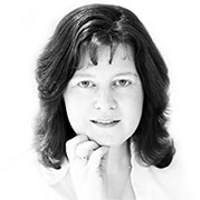Sleep Issues
A lack of sleep or disturbed sleep can become the focus of our day. Symptoms can be wide-ranging, from being tired and irritable through to depression, lack of memory recall and an inability to concentrate.
We are very individual in our sleep requirements, with some requiring more sleep than others; therefore not all of us fit into the assumed seven to eight hours of ‘recommended sleep’, and this can alter with age. It is important to also take into consideration that while some of us are morning larks others are night owls, so this affects our optimal time for going to bed or rising in the morning.
Our energy levels peak and dip throughout the day and by identifying these ups and downs, we can influence what we do within these times to aid our sleep at night. I work with identifying each individual’s pattern to allow some minor changes as to when we get up, go to bed, exercise and eat to allow us to fit into our own personal pattern.
I work with individuals to explore the cause of their sleep disturbances while at the same time using techniques to alleviate the disturbances and issues caused by a lack of, or disturbed sleep pattern. Dependant upon the person, I use a variety of techniques ranging from CBT(i), deep relaxation methods which are highly individualized to suit just that person, helpful sleep practices to suit an individual, identifying an individual’s energy peaks and dips throughout the day, diet and nutrition, as well as supplementation where required.
“I find the nights long, for I sleep but little, and think much.”
-

Maria Webb
BSc (Hons) - Psychology
BA - Counselling
Diploma in Clinical and Pastoral Counselling
Diploma in Stress Management
Accredited Member of National Council of Integrative Psychotherapists
Member of the British Psychological Society (GMBPsS)
Fellow of Accredited Counsellors, Coaches, Psychotherapists and Hypnotherapists
I started practising Stress Management within the clinic in 1990. Whilst still working in the sphere of stress management, I sought a deeper understanding of the psychological process in relation to mental health.
This led me to undertake my degree in Psychology followed by my second degree in Counselling. The additional education and more specialist training in various schools of psychology allowed me to expand the repertoire of therapeutic techniques and now practice Counselling and Psychotherapy for a wide range of emotional, psychological and relationship issues.